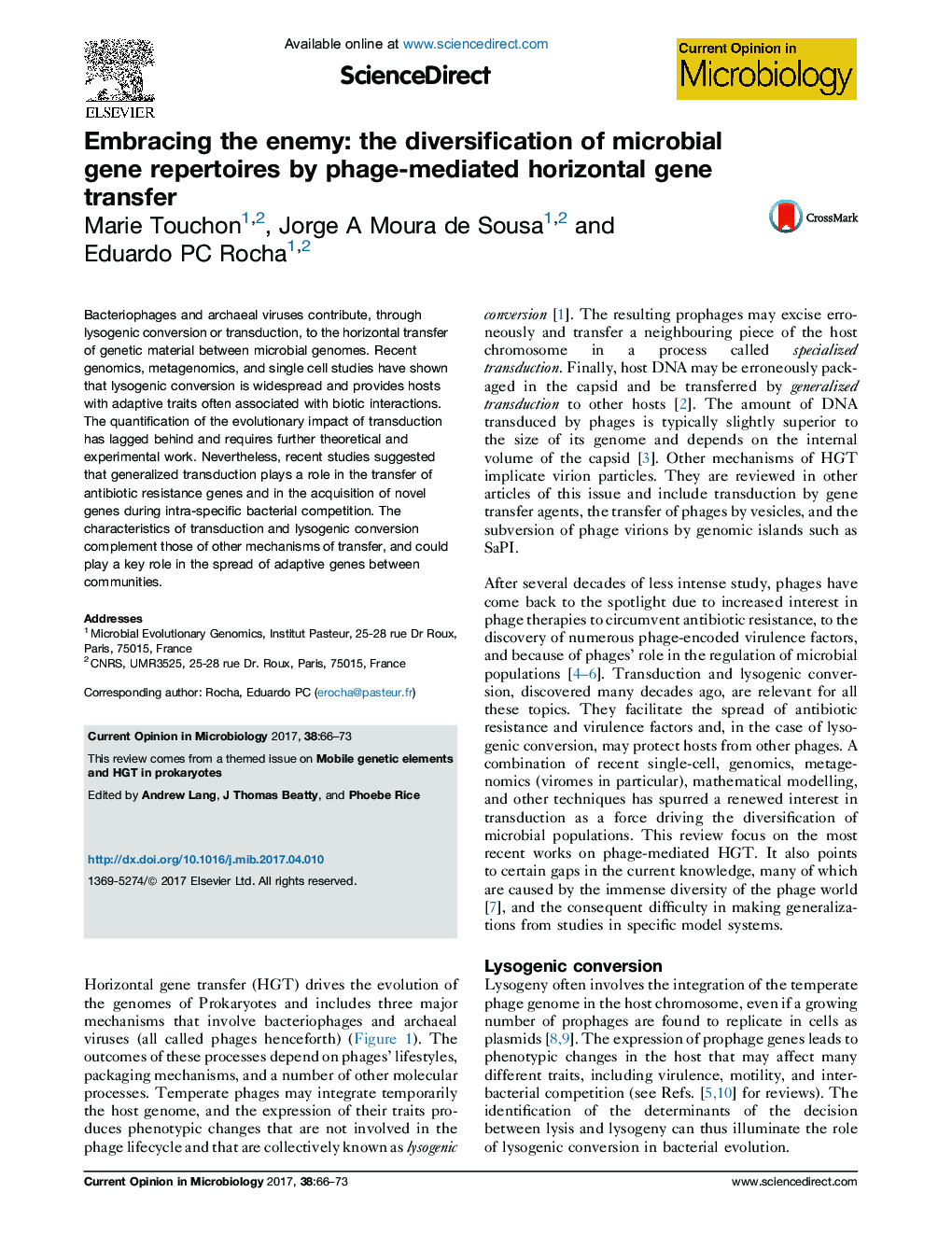| Article ID | Journal | Published Year | Pages | File Type |
|---|---|---|---|---|
| 5671693 | Current Opinion in Microbiology | 2017 | 8 Pages |
â¢Phages drive horizontal gene transfer between prokaryotes.â¢Lysogenic conversion provides novel adaptive traits, at the cost of eventual lysis.â¢Prophages account for a sizeable fraction of bacterial gene repertoires.â¢The environmental rates of specialized and generalized transduction, and their evolutionary relevance, are poorly known.â¢Theoretical work is necessary to understand the role of transduction in the evolution of prokaryotes and in phage therapy.
Bacteriophages and archaeal viruses contribute, through lysogenic conversion or transduction, to the horizontal transfer of genetic material between microbial genomes. Recent genomics, metagenomics, and single cell studies have shown that lysogenic conversion is widespread and provides hosts with adaptive traits often associated with biotic interactions. The quantification of the evolutionary impact of transduction has lagged behind and requires further theoretical and experimental work. Nevertheless, recent studies suggested that generalized transduction plays a role in the transfer of antibiotic resistance genes and in the acquisition of novel genes during intra-specific bacterial competition. The characteristics of transduction and lysogenic conversion complement those of other mechanisms of transfer, and could play a key role in the spread of adaptive genes between communities.
Graphical abstractDownload high-res image (61KB)Download full-size image
